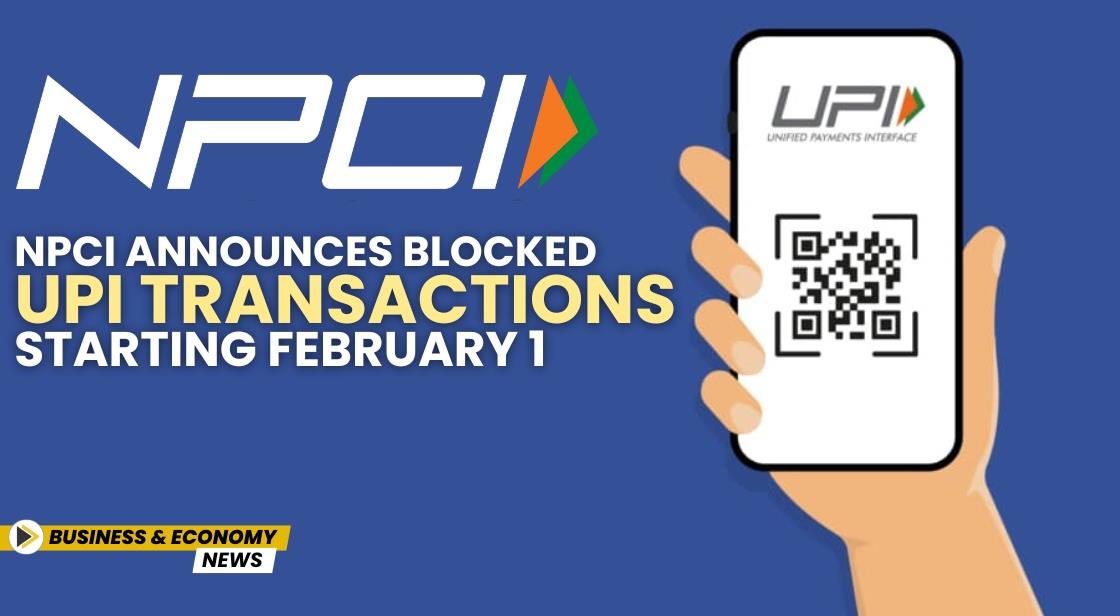NPCI Announces Blocked UPI Transactions Starting February 1

News Synopsis
Starting February 1, 2024, the National Payments Corporation of India (NPCI) will enforce a significant change in the way UPI transaction IDs are created. UPI payment apps will no longer be allowed to use special characters in transaction IDs. This change comes as part of NPCI’s ongoing efforts to standardize the process of UPI transaction ID generation and ensure compliance with UPI technical guidelines.
NPCI’s Directive on Transaction ID Format
NPCI has issued a statement instructing all players in the payment ecosystem to ensure that UPI transaction IDs consist solely of alphanumeric characters. The use of special characters will be prohibited, and any transactions that include special characters will be rejected by the central system. This measure aims to streamline the process and enhance the overall security and efficiency of UPI transactions.
The NPCI has been issuing reminders to UPI ecosystem participants since March 2024, emphasizing the importance of compliance with the technical specifications for generating UPI transaction IDs. On January 9, 2024, the NPCI released an official circular outlining the new requirement, asking UPI service providers to avoid using special characters in the transaction IDs. This directive has been reinforced due to persistent issues with certain participants not adhering to the guidelines.
Why Special Characters in UPI Transaction IDs Are Being Blocked
The NPCI's decision to block UPI transactions with special characters is rooted in the need for standardization and increased security. Alphanumeric-only transaction IDs will reduce the chances of potential vulnerabilities and help improve system efficiency. By enforcing this rule, NPCI aims to create uniformity across the UPI ecosystem, preventing errors or inconsistencies that could arise from special characters.
Compliance with NPCI Guidelines
While major UPI players have largely complied with the new directives, there are still some payment service providers (PSPs) that have yet to meet the compliance requirements. Alok Singh, Executive VP - Digital Business at Ongo, noted that the majority of payment players have adhered to the rule of using 35 alphanumeric characters for transaction IDs. However, some are still lagging behind in this regard.
The Impact on UPI Transactions
The enforcement of this change is expected to streamline UPI transactions across the country, making them more secure and efficient. Mohan K, Founder of TechFini, explained that UPI transactions containing special characters will be rejected by the central system, meaning that only transactions with alphanumeric IDs will be processed successfully. The decision aims to improve the overall user experience by reducing errors and enhancing transaction reliability.
UPI Transaction Growth in December 2024
NPCI also reported significant growth in UPI transactions in December 2024. According to the latest data, UPI transactions hit a new high of 16.73 billion in December, marking an 8% increase from the previous month's 15.48 billion. The total value of these transactions amounted to Rs 23.25 lakh crore, up from Rs 21.55 lakh crore in November 2024. On average, there were 539.68 million daily transactions, compared to 516.07 million the previous month, indicating a growing reliance on UPI for digital payments.
Conclusion
The new policy enforced by the NPCI to block UPI transactions containing special characters in transaction IDs marks a crucial step toward creating a more secure and efficient UPI ecosystem. By standardizing transaction ID formats and encouraging alphanumeric IDs, NPCI aims to improve system integrity, user experience, and overall transaction speed. Payment service providers are urged to comply with these new guidelines to avoid disruptions in their UPI transaction processing.
You May Like









